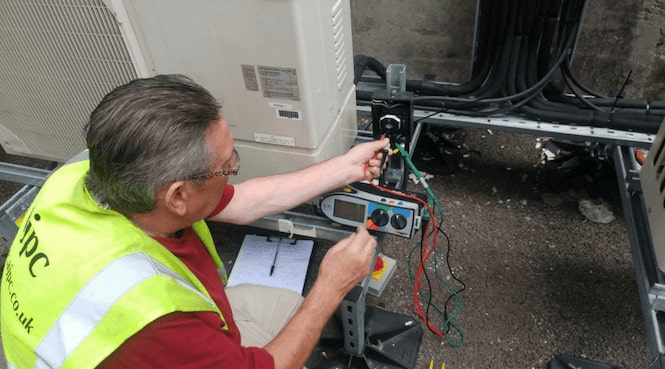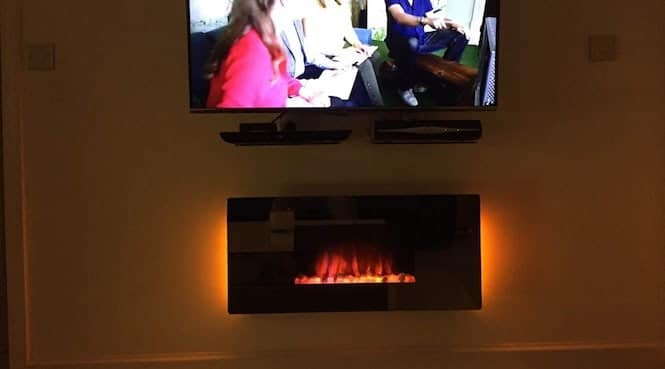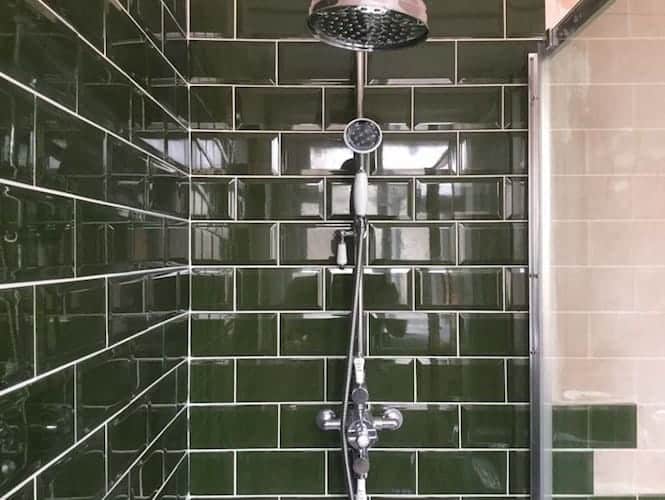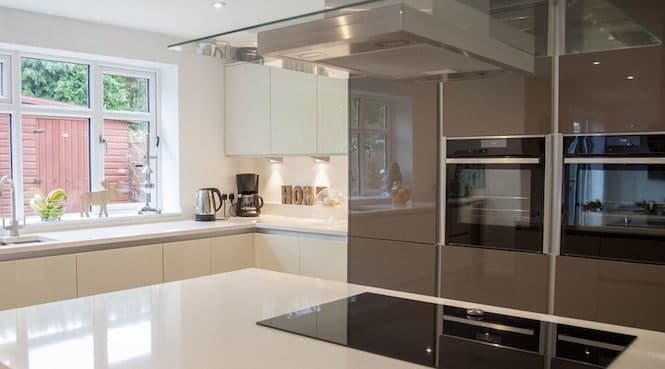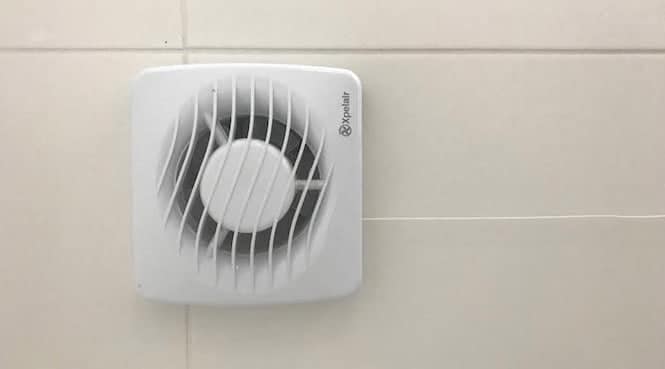Find My Local Expert Everything You Need to Know About...
Read More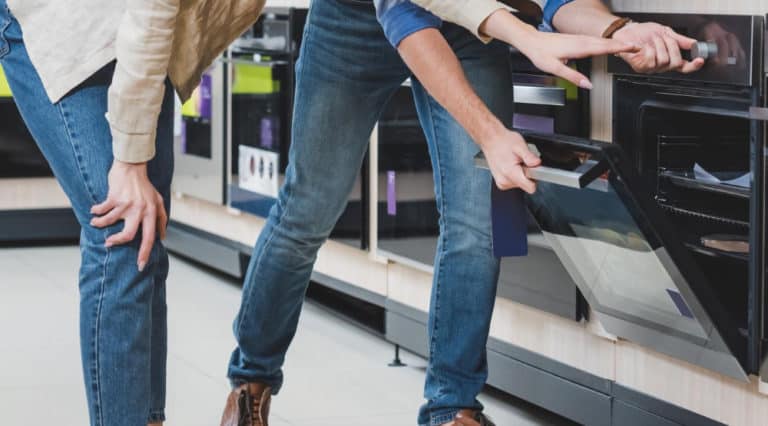
How to Install an Electric Cooker Safely
Electric cookers can be a bit confusing when it comes to whether you can install them yourself. On the one hand, they should always be on their own circuit with a breaker or fuse dedicated to them, which would imply that only a qualified electrician should be handling it since your fuse box is most certainly something not to mess with if you don’t have the appropriate skills and qualifications. On the other hand, some electric cookers come with a regular plug that will go straight into a standard wall socket, which would suggest anyone who can plug in a lamp should be able to install the cooker.
Well, both of these things are correct. It all comes down to the cooker.
Cookers Rated Under 3kW
Electric cookers have a kW rating that tells you how much power they use. For cookers under 3kW, it is perfectly acceptable to power them using a regular 13-amp plug and socket. In most cases (but not all, every home is different), this should mean any plug socket is fair game.
That being said, even if the cooker is rated low enough to connect to a regular plug socket, it is still going to be one of the biggest appliances in your home, electrically speaking, so it is still recommended to have it on a dedicated circuit, and that requires a professionally trained and qualified electrician.
Cookers Rated Over 3kW
For larger cookers with more advanced features and higher-powered cooking options, you will almost certainly be looking at an oven that is rated over 3kW, and that makes them unsuitable for a standard 13-amp wall socket.
Cookers like this must be hardwired into your home’s electrical network and must have their own dedicated breaker or fuse to isolate them. This is where your qualified electricians come in.
In the UK, there are laws governing what you can and can’t do with the electrical systems in your house without professional oversight. Minor tasks—like changing a light switch or moving a wall socket a small distance—can be carried out without the need for a qualified electrician or for the local council to be notified. However, the more substantial work—like installing an over-3kW cooker—is what is known as notifiable work, and must be signed off by a certified electrician.
Can I Wire it Myself?
Technically speaking, yes you can. The law does not state that a certified electrician has to carry out notifiable electrical work, only that a certified electrician needs to sign off on the work being up to all the relevant standards. This means that you could do the work yourself and then get a certified electrician to check it over and do the necessary paperwork… in theory. In practice, you may find this a little difficult to achieve. What you need to remember is that the certified electrician who signs off on your work is putting their livelihood on the line.
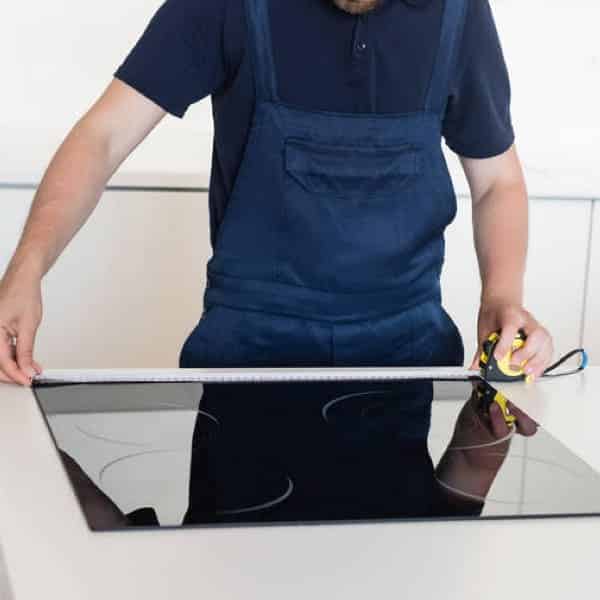
If any legal trouble were to arise because you have carried out work to a poor standard, or not used the correct wiring or fixtures, it would be the electrician who signed that work off as good that would get into trouble. For this reason, you may struggle to find an electrician prepared to certify your work if they cannot see everything you have done. That includes any wiring that may be concealed behind walls or kitchen cabinets.
If you decide to do the work yourself and get it certified, it will probably save you a headache if you get in touch with an electrician before starting the work. Not only will this allow you to make sure you can find an electrician prepared to do the certification, but it will also allow you to ask them what they will want to see when they inspect your work. This should help you avoid having to rip cabinets out or redo any other work you have done in order to give the electrician access to what they need.
Of course, if you are installing one of the aforementioned under 3kW cookers, you don’t need to worry about the hard-wiring part (though it is still recommended to have the cooker on a dedicated circuit) as the most involved electrical work would be installing a regular plug to the cooker… and many cookers even come with the plug already installed!
Cut Off/Isolation Switch
The additional requirements for cooker-related electrical installations are, of course, largely based on safety. If something were to go wrong with a cooker, it could cause a lot of damage to your property, your health, and, of course, your meal.
If your cooker develops a fault where it will not turn off, or if something goes awry inside and an electrical fire starts, you will need to kill the power to the cooker immediately. If you can easily get to your fuse box and you know which fuse or breaker your cooker is on, that will of course be sufficient to stop the power to your cooker, but it is rarely the most practical method.
Fortunately, we have isolator switches for this very reason.
Your isolator switch is essentially a regular switch like the ones you use to control your lights, but instead of controlling your lights, it cuts the power to your oven. This switch will typically be not too far from the oven and gives you a convenient way of cutting the power to your cooker, suitable in the event of an emergency, or just for maintenance work or cleaning.
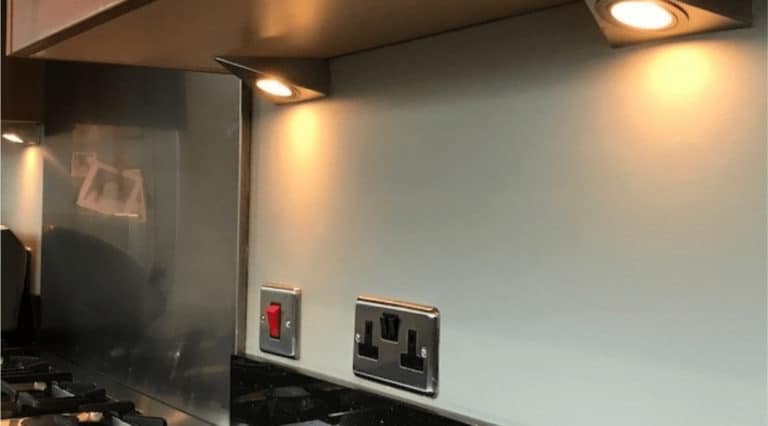
The law on isolation switches is a little fuzzy in the UK. It is not technically a legal requirement to have such a switch, however, it is a legal requirement that the manufacturer’s instructions be followed, and most electric cooker instructions will state that an isolation switch should be installed.
Of course, regardless of whether you are legally required to install an isolation switch, it should be considered a common-sense addition to your electric cooker setup.
The Non-Electrical Side of Cooker Installation
Safely installing a cooker is about more than just managing to install electric cooker wiring correctly, of course. You will also need to make sure the cooker is physically safe in the location you intend to put it.
If your cooker is freestanding, this is a relatively straightforward task. As long as the floor underneath the cooker is strong enough and the cooker is on even footing, you should be fine. You will want to make sure the cooker cannot move around, especially if it has a gas attachment for the hobs, but other than that, you should be good to go.
If your cooker is fitted, you will need to make sure it is properly secured, and that the cabinetry around it is also properly installed. Fitted cookers are rarely the heaviest appliance in your home, but they are still heavy enough to cause some damage to property and person if they were to come crashing down out of the hole they were supposed to be secured in.
Other things to consider here include lifting things properly. If you are moving a large free-standing range cooker, you should treat it as a two-person job, being sure to lift with your knees to avoid damaging your back. Trying to lift it yourself could result in injury, and shuffling it along the floor could damage your floor. This is less of a concern for smaller, lighter fitted cookers, but you will know your own limitations. If you are struggling to lift the cooker, get help, don’t injure yourself by trying to do too much.
Gas Connections
Many free-standing electric cookers have gas hobs. Now, it should go without saying that any gas connections will need to be taken care of by a registered gas safe plumber. It is illegal to start messing with gas pipes yourself (unless you are qualified) but beyond that, the risks are simply too great. Leaking gas could cause breathing problems and, of course, explosions.
The exception to this rule is if you are temporarily removing an already professionally installed cooker that has a bayonet fitting. These fittings are self-sealing and simply twist and pull out. They are designed to allow unqualified persons to temporarily disconnect their cooker for things like cleaning, but anything beyond disconnecting or reconnecting that bayonet fitting will need a qualified professional.
Hire A Professional
The amount of professional help required to safely install an electric cooker is largely down to the type of cooker. A large free-standing cooker with all the trimmings and a gas hob will need both the help of a qualified electrician and a gas-safe plumber. On the other hand, a small fitted oven that is rated under 3kW and has no gas components can be fitted entirely by you with no professional help needed.
That being said, if you are at all unsure about the process, don’t hesitate to get help. It is far better to be safe than sorry when dealing with large electrical appliances.
You May Also Like...
Electric Wall Heater Installation
Find My Local Expert Electric Wall Heater Installation Considerations Many...
Read MoreElectric Shower Installation Overview
Find My Local Expert What you need to know when...
Read MoreElectric Cooker Installation
Find My Local Expert Getting Ready for an Electric Cooker...
Read MoreBathroom Extractor Fan Installation
Find My Local Expert Installing a Bathroom Extractor Fan The...
Read MoreOur Electrician can install it for you!
My Trusted Expert Guarantee
Experts Have Been Vetted & Approved
